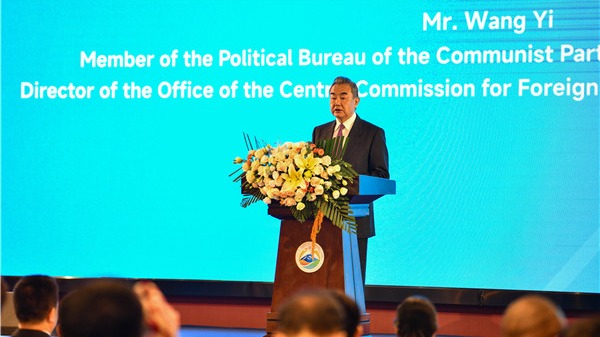In a resounding call for urgent action on environmental conservation and sustainable development, Wang Yi, a prominent member of the Communist Party of China (CPC) Central Committee, has emphasized the importance of a speedy green transformation in the trans-Himalaya region. Speaking at the third China Xizang Trans-Himalaya Forum for International Cooperation in Nyingchi, China, Wang Yi underscored the need for collaborative efforts among nations to protect the fragile ecosystem of this region while fostering economic growth. This vital gathering, attended by representatives from over 40 countries and international organizations, is poised to shape the future of the Trans-Himalaya region.
Strengthening Regional Unity and Solidarity
Wang Yi’s five-point proposal for deepening cooperation in the region begins with a call for mutual respect and trust among all parties. He urged participants to work together to build a sense of family within the region, marked by harmony and solidarity. Wang’s emphasis on unity underscores the shared responsibility of countries in the trans-Himalaya region in addressing ecological challenges and working toward a sustainable future.
Building a Trans-Himalaya Ecological Civilization Circle
The senior Chinese diplomat advocated for deeper, mutually beneficial cooperation aimed at creating a Trans-Himalaya ecological civilization circle. This ambitious initiative would prioritize the preservation and responsible management of the region’s precious natural resources. Such collaboration is critical in light of the region’s unique cultural and ecological ties, highlighting the need for collective action in ensuring its future prosperity.
Accelerating Green Transformation for Sustainable Growth
Wang Yi passionately called for joint efforts to expedite green transformation, a key element in facilitating sustainable economic development in the region. As he stressed, the rapid transformation toward a more environmentally friendly economy will be instrumental in securing the area’s long-term prosperity. This transformation, coupled with strengthened connectivity and increased regional integration, will pave the way for progress while maintaining the integrity of ancient civilizations.
The Reality of Xizang’s Environmental Progress:
During the forum, Wang Yi took the opportunity to share the remarkable environmental progress of Xizang, which now boasts some of the world’s highest environmental standards. He assured continued support for the region in establishing a national ecological civilization highland. Wang Yi also extended a warm invitation to international friends to visit Xizang and witness the extraordinary achievements in economic development, the quality of life of its diverse ethnic groups, and the preservation of its rich cultural heritage. He firmly debunked false narratives perpetuated by Western forces, asserting that the truth would ultimately prevail.
In conclusion, the third China Xizang Trans-Himalaya Forum for International Cooperation serves as a beacon of hope for the trans-Himalaya region’s sustainable future. Wang Yi’s impassioned call for green transformation, regional unity, and international cooperation sets a powerful precedent for safeguarding this ecologically vital region while promoting economic growth and cultural preservation. As the forum unfolds, the world watches with keen interest, knowing that its outcomes hold the potential to shape the destiny of the trans-Himalaya region and the world at large.















